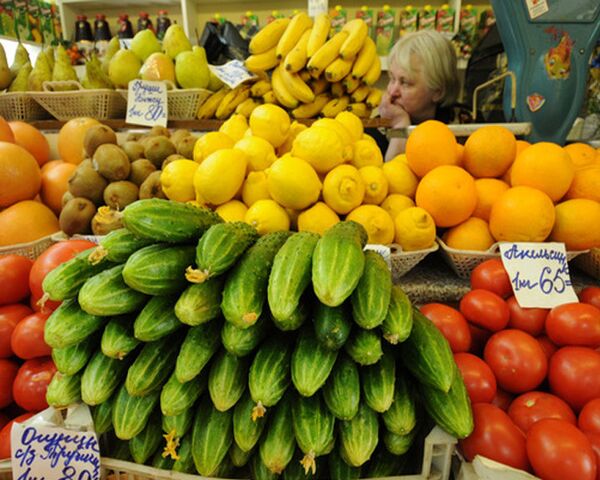MOSCOW, August 20 (RIA Novosti) - Attempts to import embargoed European products to Russia are on the rise, a spokesman for Rosselkhoznadzor, Russia’s agricultural watchdog, told RIA Novosti on Wednesday.
Attempts to import banned European food are on the rise, as EU manufacturers attempt to claim their products are produced in countries not affected by the ban, Alexei Alexeyenko, assistant to the head of Rosselkhoznadzor, said.
Products said to be made in countries outside the European Union have turned out to have only EU phytosanitary certificates, Alexeyenko said, noting that Rosselkhoznadzor believes them to be falsely marked to avoid the import ban.
EU products are being sent to Russia under the guise of being produced in countries such as Macedonia, Serbia, Algeria, Zimbabwe, Turkey, Morocco and Bosnia and Herzegovina. Eleven trucks containing 100 tons of food have already been returned to manufacturers, after being stopped at the Russia-Belarus border.
To enter the country, importers must show a phytosanitary certificate issued by the producer country in addition to the European transit certificate. Russian and Customs Union of Belarus, Kazakhstan and Russia legislation states that failure to do so could lead to the products being destroyed or returned to the manufacturer.
Switzerland has refused to help EU food producers avoid the Russian ban. The country's Federal Office for Agriculture said on Tuesday that it has rejected requests to help transport banned food products to Russia.
Russian authorities are holding negotiations with members of the Customs Union and other countries not affected by the ban to prevent the re-export of embargoed products.
On August 7, Russia imposed bans on the import of meat, seafood, fruit and vegetables and milk products from the United States, European Union, Norway, Canada and Australia in response to a new round of Western sanctions.

